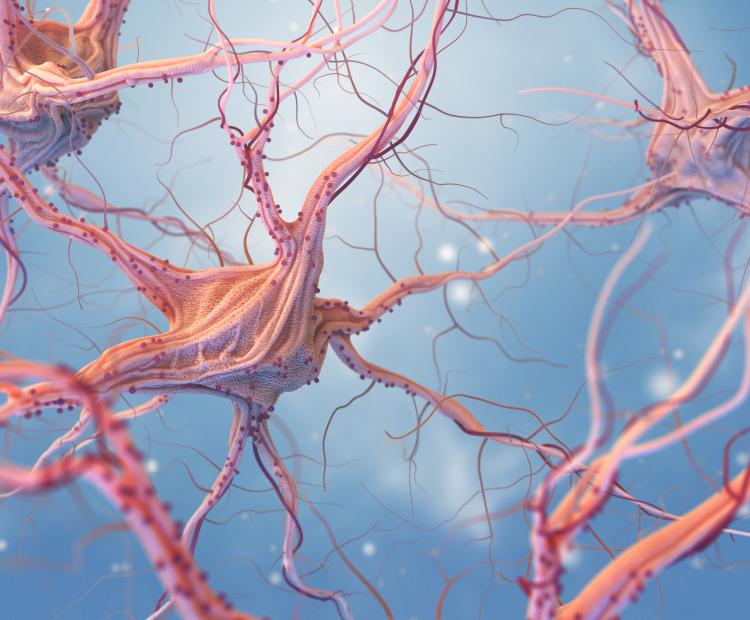If your pain specialist has recommended radiofrequency ablation as a treatment for pain, there are several things to consider for this common outpatient procedure. It is best to know what to expect after the procedure, how soon pain relief will begin, and how long it will last.
For certain causes of chronic neck and back pain, radiofrequency ablation can be a very effective treatment for controlling your chronic pain.
At Advanced Spine and Pain, our specialists can answer any questions about radiofrequency ablation. Call us today at (480) 573-0130 or contact us online to learn more.
The Basics: What is Radiofrequency Ablation?
Radiofrequency ablation, or RFA, is a procedure used to treat chronic pain. It blocks pain signals at the levels of specific nerves and is a minimally invasive injection.
RFA is accomplished by injecting a numbing medication (local anesthetic) directly into the location of nerve irritation and using thermal energy from radiofrequency waves to create heat that kills the nerve tissue. Once the nerve tissue dies, there will no longer be pain signals to the brain from these nerves or nerves, resulting in pain relief.
How Long Does It Take for the Nerves to Die?
Some people may report immediate pain relief after radiofrequency ablation. However, it is not uncommon for nerves to die one to three weeks1 after the procedure and for more complete pain relief to set in. Sometimes, it may take four to six weeks to obtain full relief.
.png)
What to Expect After Radiofrequency Ablation
If you have had an RFA performed on nerves that are the source of pain, you may wonder why pain control is not immediate and whether continued discomfort means the procedure didn’t work. Although burning the nerves only takes a few minutes, the relief sometimes takes longer to reach its maximum effect as you wait for the nerves to die. This is completely normal and is not cause for concern.
Immediately after the nerve-burning procedure, you may notice:
- Mild discomfort at the injection site
- Temporary numbness at the injection site
- Burning pain at the RFA site that can last one to four weeks
Radiofrequency ablation may not result in 100% pain relief. Doctors consider RFA successful pain relief when it results in a certain percentage of relief (usually greater than 50%), depending on the location of the nerve pain signals, for example:
Contact your doctor for further advice if you are concerned or unsure about any of your symptoms after an RFA procedure.
What Precautions Should I Take After Radiofrequency Ablation?
Your doctor will recommend specific care instructions after the nerves are burned during the RFA procedure. Sometimes, ice is used at the injection site to help numb discomfort, and over-the-counter pain medicine may be suggested for a few days after the procedure.
Most people can resume regular activity after 24 hours if they avoid strenuous exertion the week after the procedure.
Some problems to report to your doctor immediately include:
- Bleeding at the injection site that doesn’t stop
- Swelling, redness, or pain at the injection site that worsens
- Pain at the injection site that doesn’t improve after 1-2 weeks
- Severe pain of any kind
- Increased weakness or numbness in your arms or legs
How Long Does Radiofrequency Ablation Last?
Radiofrequency ablation can last six to twelve months, sometimes longer.
The nerve tissue typically does grow back over time, and thus, most people benefit from repeating the RFA. Each time, you can expect that it will take one to four weeks for the nerves to die after the radiofrequency ablation.
Radiofrequency ablation may be repeated for some patients when the pain returns or becomes disruptive following RFA. Sometimes, this may not be for quite some time after the procedure. The success of RFA depends on several factors1, including:
- The location of the pain
- History of previous surgery
- A history of depression
- The number of sites being treated
What If It Takes Too Long For The Nerves To Die After Radiofrequency Ablation?
It’s important to remember that feeling pain after radiofrequency ablation does not necessarily mean it is not working or that something is wrong. The nerves may take a week or longer to die after radiofrequency ablation, and RFA may not completely block the transmission of all pain signals from the painful body region.
However, if the pain worsens or does not improve, you should contact your doctor for more advice.
Our Advanced Spine and Pain providers can help walk you through whether radiofrequency ablation is the right pain management for your chronic pain and what to expect after your procedure. Contact us today for expert advice from our team, or call us at (480) 573-0130.
References
- Streitberger, K., Müller, T., Eichenberger, U., Trelle, S., & Curatolo, M. (2011). Factors determining the success of radiofrequency denervation in lumbar facet joint pain: a prospective study. European Spine Journal, 20(12), 2160–2165. https://doi.org/10.1007/s00586-011-1891-6
- Reddy, V. S. A., Sharma, C., Chang, K., & Mehta, V. (2016). ‘Simplicity’ radiofrequency neurotomy of sacroiliac joint: a real life 1-year follow-up UK data. British Journal of Pain, 10(2), 90–99. https://doi.org/10.1177/2049463715627287
- McCormick, Z. L., Marshall, B., Walker, J., McCarthy, R., & Walega, D. R. (2015). Long-Term function, pain and medication use outcomes of radiofrequency ablation for lumbar facet syndrome. International Journal of Anesthetics and Anesthesiology, 2(2). https://doi.org/10.23937/2377-4630/2/2/1028
- Log in to post comments

